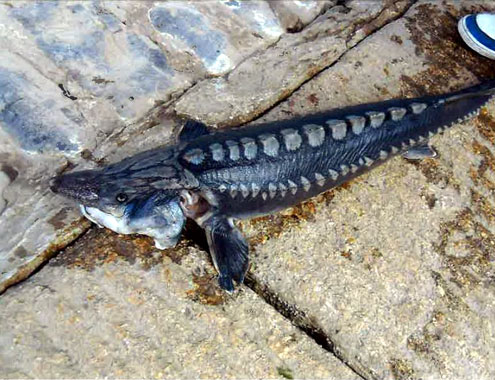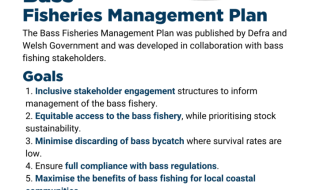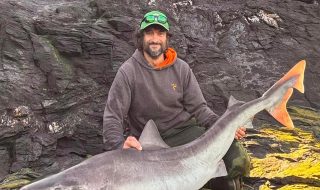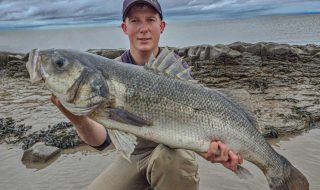Sea anglers and commercial fishermen along the U.K. coasts are being asked from today to watch out for one of the most unusual catches they may ever make – a sturgeon.
It is one of the most protected fish in the world. The eggs of the beluga species are served as caviar.
The sturgeon alert comes after one of two boys fishing at Hobbs Point, near Pembroke Dock, South Wales on August 2 hooked one about a metre long (3 feet).
“We are sure from the only photograph taken that it was a sturgeon and that it may be the forerunner of others arriving here. Where it came from is at present a mystery,” said Steve Colclough of the Institute of Fisheries Management (IFM).
His records show that 133 sturgeon have been captured in the UK, the earliest in 1792. The most prolific year was 1972 when 30 were caught.
The last reported in UK waters was nine years ago when one 2.6 metres (8 feet 6 inches) long was caught in June 2004, also in South Wales by a trawler 2.4 kilometres (1.5 miles) off Port Talbot.
“It is illegal to retain sturgeon and anybody catching one should return it quickly unharmed and alive to the water and then report it.” said Mr. Colclough who is chairman of the IFM marine section.
“But before putting it back,” Mr. Colclough added, “they should note as many facts as possible – its length, overall condition, signs of damage or disease, the data on any tag attached to it and take a good photo.
“A yellow tag would show the fish had probably migrated from the Gironde river in France where the European sturgeon is now being bred and released.” These fish would normally stay in the Gironde until they were about ten years old and they might then migrate to the open sea, Mr. Colclough added.
“If they came to the UK they would most likely be caught in estuaries and still be juvenile fish. Normally they would live 50 or 60 years and grow up to three-metres (about 10 feet) long”
Anglers should report any sturgeon caught to their local Inshore Fisheries and Conservation Authority (IFCA) or to the Centre for Environment, Fisheries and Aquaculture Science (Cefas) on 01502 562 244 at Lowestoft, or 01305 206 600 at Weymouth.
Mr. Colclough would also like to hear from them on 01634 686460 or by e-mail to srcifm@gmail.com.






